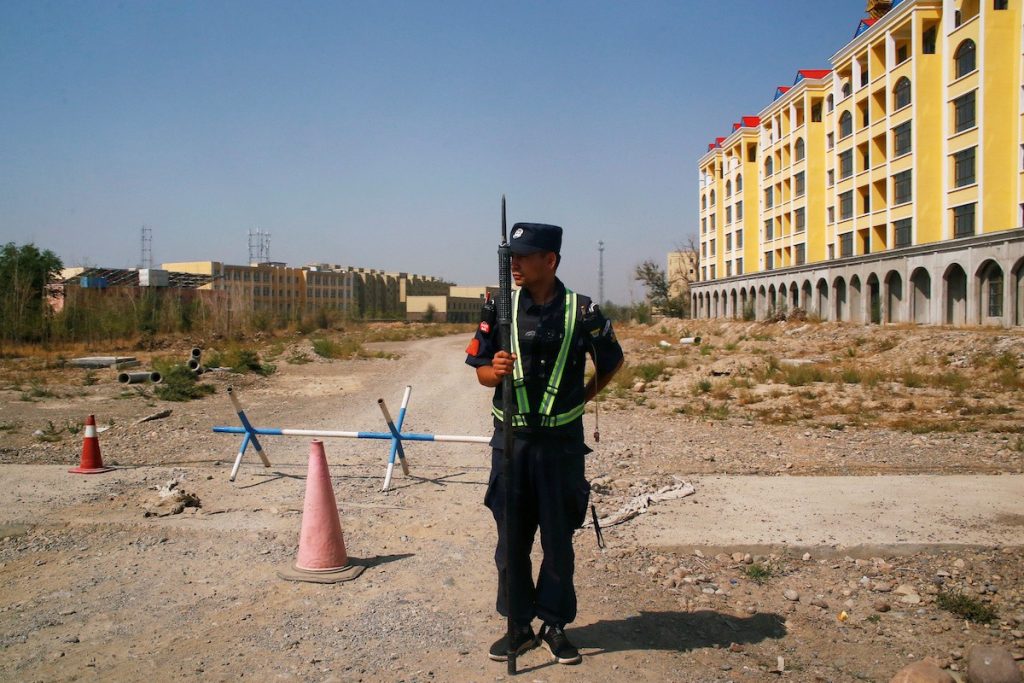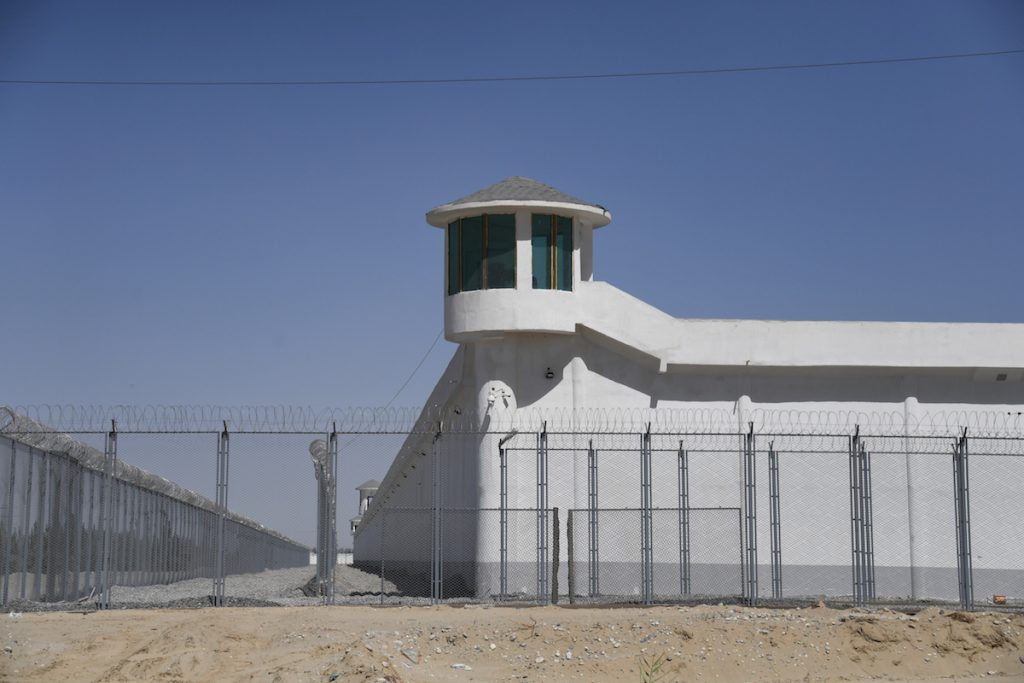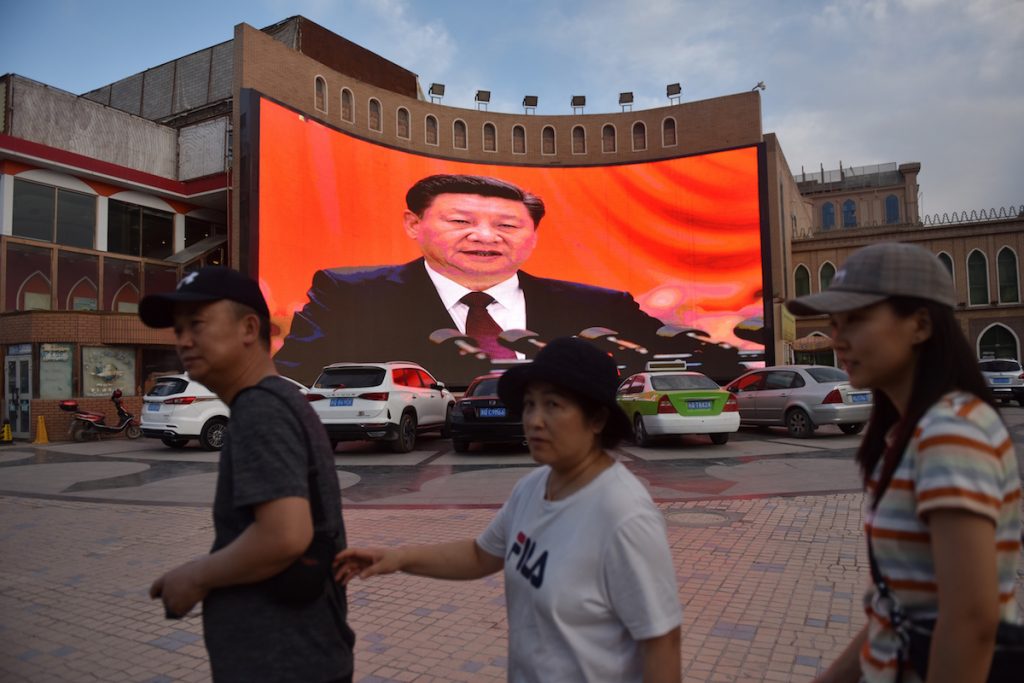
Communist authorities in China have possibly committed “genocide” against Uyghurs and other minority Muslims in the Xinjiang region, a bipartisan commission of the US Congress said in a report.
The Congressional-Executive Commission on China (CECC) said new evidence had emerged in the past year that the Chinese government and Communist Party have taken unprecedented steps to extend their repressive policies through censorship, intimidation, and the detention of people in China for exercising their fundamental human rights.
“Nowhere is this more evident than in the Xinjiang Uyghur Autonomous Region (XUAR) where new evidence emerged that crimes against humanity — and possibly genocide — are occurring,” the CECC said in their report released Jan. 14.
“In [Xinjiang], it is now estimated that up to 1.8 million Uyghurs, Kazakhs, Kyrgyz, Hui, and others have been arbitrarily detained in a system of extrajudicial mass internment camps where they are subjected to forced labor, torture, and political indoctrination,” the report said.
“In the last year, leaked Chinese government documents provided additional evidence that the mass internment camp system was organized at the direction of top party officials and confirmed the prevalence of the use of coercive force and punishment for inmates,” it said.
“Forced labor in the XUAR is widespread and systematic and exists within the mass internment camps and elsewhere throughout the region, as part of a targeted campaign of repression against Turkic and Muslim minorities.”
The report also accused the Chinese government of harassing Uyghurs in the United States.
The Chinese government has been widely condemned for setting up complexes in Xinjiang that it describes as “vocational training centers” to stamp out extremism and give people new skills and which others have called concentration camps.
Faith leaders, activist groups and others have said crimes against humanity, including genocide, are taking place there. In August, religious leaders, including Myanmar’s Cardinal Charles Bo and Indonesia’s Cardinal Ignatius Suharyo, said in an open letter that the “repression” in Xinjiang has become “one of the most egregious human tragedies since the Holocaust.”
The CECC report called for a formal US “determination on whether atrocities are being committed” in Xinjiang, something required within 90 days of US legislation passed on Dec. 27.
Secretary of State Mike Pompeo, in his final days in office before President-elect Joe Biden succeeds President Donald Trump on Jan. 20, has already been weighing a determination. But given the current turmoil in Washington, officials have played down the possibility of an announcement before that.

‘Shocking and unprecedented’
CECC co-chair, Democratic Representative Jim McGovern, called China’s actions to crush human rights in the past year “shocking and unprecedented” and urged Congress and the incoming Biden administration to hold Beijing accountable.
“The United States must continue to stand with the people of China in their struggle and lead the world in a united and coordinated response to the human rights abuses of the Chinese government,” he said.
In Trump’s last year in power, relations between the world’s two biggest economies have plunged to their lowest level in decades with disagreements on issues including human rights, the coronavirus pandemic, trade and espionage.
Experts say a US genocide determination would be an enormous embarrassment for China, a permanent member of the UN Security Council.
It could also pose problems for Biden by complicating his dealings with Beijing, although his campaign had already declared, before the November election, that genocide was occurring in Xinjiang.
In October, Trump’s national security adviser, Robert O’Brien, said Beijing was perpetrating “something close to” genocide and other officials have referred to concentration camps in Xinjiang.
In that same month, US senators introduced a bipartisan resolution that seeks to declare the Chinese government’s actions against the Uyghur people as a genocide.
The resolution states that China’s campaign “against Uyghurs, ethnic Kazakhs, Kyrgyz and members of other Muslim minority groups in the Xinjiang Uyghur Autonomous Region constitutes genocide.”

Strongest evidence yet
Under international law, crimes against humanity are defined as widespread and systematic, whereas the burden of proof for genocide — the intent to destroy part of a population — can be more difficult to prove.
Expectations that Pompeo might declare genocide were raised in June when he labeled as “shocking” and “disturbing” reports that China was using forced sterilization, forced abortion and coercive family planning against Muslims.
Pompeo was referring to an earlier report about Xinjiang by German researcher Adrian Zenz, which the CECC report also cited.
Zenz said his findings represented the strongest evidence yet that Beijing’s Xinjiang policies met one of the criteria cited in the UN genocide convention, namely “imposing measures intended to prevent births within the (targeted) group.”
Zenz, a senior fellow in China Studies at the Washington-based Victims of Communism Memorial Foundation, reported that population control measures in Xinjiang include “fines on Uyghur women with three or more children, mandatory pregnancy tests and examinations, and the forced implantation of IUDs or sterilization surgery.”
His report indicated that the forced population control measures led to some 84 percent birth rate reduction in two major Uyghur prefectures between 2015 and 2018. The report also claimed that Uyghur women who refused to undergo the procedures were detained in internment or “re-education” camps.
Business with Xinjiang
A US genocide declaration would mean countries would have to think hard about allowing companies to do business with Xinjiang, a leading global supplier of cotton. It would also raise pressure for further US sanctions.
On Jan. 13, US Customs and Border Protection said the United States was imposing a region-wide ban on all cotton and tomato products from Xinjiang over allegations that they are made with forced labor by detained Uyghurs.
With Reuters
Source: Licas Philippines
0 Comments